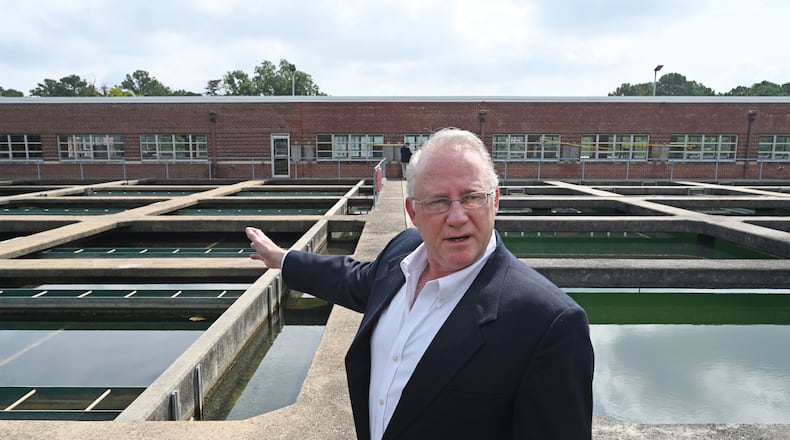Georgia is set to receive nearly $120 million to replace dangerous lead pipes around the state and clean-up drinking water in communities whose supplies are contaminated by toxic pollutants like “forever chemicals,” the federal government announced Tuesday.
The money comes from an enormous $6.5 billion pot that the federal Environmental Protection Agency (EPA) said it was releasing to all 50 states, plus tribes and territories around the country, based on needs determined by a recent nationwide drinking water assessment.
Georgia is receiving its regular allocation from the federal Drinking Water State Revolving Fund — a longstanding grant program for water safety improvements.
But the amount of money headed to the state got a huge boost from the Bipartisan Infrastructure Law passed by Congress in 2021. The law invested an unprecedented $50 billion for drinking water improvements across the country, part of a major Biden administration push to address health and environmental concerns lurking in the nation’s water supplies.
“Every community deserves access to safe, clean drinking water,” EPA Administrator Michael S. Regan said in a news release. Regan said the infrastructure law is “an unprecedented opportunity” to revitalize water systems, “support the Biden-Harris Administration’s goal of removing 100% of lead pipes across our country” and protect communities from pollution from “forever chemicals.”
Georgia does not have as big of a lead pipe issue as other states, like Florida and Illinois, but the EPA still estimates around 46,000 lead water lines exist in Georgia. Roughly $29 million of the funding headed to the state is earmarked to help communities remove and replace those pipes, which are the most common source of lead contamination in drinking water, the EPA says.
Lead is a potent neurotoxin that accumulates in the body over time and has been tied to several serious health conditions. The risk of exposure is greatest in children. Many studies have found the heavy metal impedes nervous system development, triggers learning disabilities, impairs hearing and reduces the function of blood cells.
Another $20 million of Georgia’s funding is dedicated to address emerging contaminants, like forever chemicals. Forever chemicals are also known as PFAS — short for polyfluoroalkyl and perfluoroalkyl substances — and have been used for years in a range of everyday products, from nonstick pans and clothing to carpets and food wrappers.
The money also is in addition to the $54 million the EPA announced Georgia would receive earlier this year to address PFAS pollution in small and disadvantaged communities.
Forever chemicals’ name comes from their resistance to heat, water and oil. The chemicals do not breakdown naturally in the environment, making their removal from drinking water difficult, energy intensive and extraordinarily expensive.
PFAS have been linked to an increasing number of serious health conditions, including cancers, immune system suppression, elevated cholesterol and decreased infant and fetal growth. In light of the growing concern, the EPA recently proposed a major tightening of its drinking water standards for the chemicals.
The agency says the new rules will cut down on PFAS-related illnesses and potentially save tens of thousands of lives. But meeting the stiffer regulations is expected to be challenging for many water systems around the country, including in Georgia.
As The Atlanta Journal-Constitution reported last year, PFAS detected in the rivers that supply drinking water to Rome have triggered lawsuits and spurred costly water system upgrades, sending customers’ water bills soaring.
Residents of Rome and the city itself are suing chemical companies, carpet manufacturers and Dalton’s water utility, alleging that years of PFAS use by the flooring industry upstream has contaminated one of the two rivers that supply the city’s drinking water. One of those cases is expected to go to trial later this year.
The rest of Georgia’s allocation is likely to fund other critical drinking water system improvements, with the exact recipients of the money to be determined later by state agencies.
About the Author


